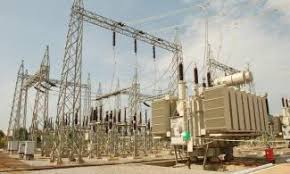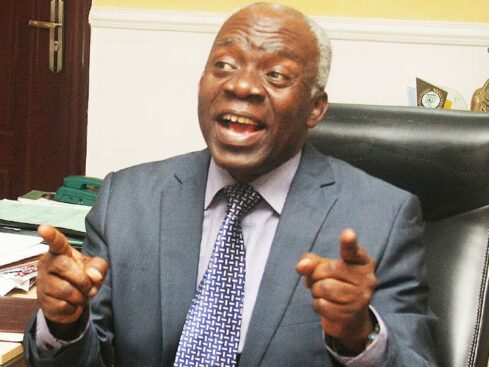By Cyril Ogar and ABAH ADAH, Abuja
A nationwide blackout may be imminent as power generation companies ,GenCos, yesterday issued a warning to the Federal Government over the continued accumulation of debts now totalling over ₦4tn.
The companies announced that they are on the brink of shutting down operations due to the growing liquidity crisis in the power sector.
In a statement released under the umbrella of the Association of Power Generation Companies ,APGC, the GenCos expressed deep frustration over what they described as “inadequate payment for electricity generated and consumed on the national grid.
They described it as a major threat to the viability of their power plants.
According to the statement, which was signed by the Chairman of the Board of Trustees of the GenCos, Col. Sani Bello ,Retd., the companies are currently owed over ₦2tn for electricity generated in 2024, in addition to ₦1.9tn in legacy debts, bringing the total outstanding to approximately ₦4 trillion.
“The Power Generation Companies “GenCos” are constrained to issue this press release to draw the attention of the federal government ,FG, and key stakeholders to the need to urgently address the issue of inadequate payment for electricity generated by them and consumed on the national grid, which is currently threatening the continued operation of their power generation plants.
“It is no more news that the power generation companies ,GenCos, have continued to bear the brunt of the liquidity crisis in the Nigerian Electric Supply Industry ,NESI. Outstanding Payments: GenCos are currently owed about ₦4tn ,₦2tn for 2024 and ₦1.9tn in legacy debts. No possible solutions, including cash payments, financial instruments, and debt swaps, are in sight.
“Notwithstanding this and other severe difficulties the GenCos have battled with since takeover in 2013, they have kept to the terms of their contractual agreements by ramping up capacity, which has been largely constrained systemically.
“Against the backdrop of the many challenges facing the power sector in Nigeria, the crises from cash liquidity are on the top burner and have reduced GenCos’ ability to continue to perform their obligations, thereby threatening to completely undermine the Electricity value chain”, the group said.
The group said despite investing significantly in ramping up generation capacity since the sector’s privatization in 2013, the absence of firm contracts, poor enforcement of power purchase agreements, and persistent non-payment of invoices have crippled their operations.
The companies also pointed out that hopes of being settled through external support mechanisms like the World Bank’s Power Sector Recovery Operation ,PSRO, have been dashed due to other market players’ failure to meet required performance targets.
“The GenCos’ expectations of being settled through external support such as the World Bank PSRO have also been dampened due to other market participants’ inability to meet their respective distribution-linked indicators ,DLIs, enshrined in the Power Sector Recovery Program ,PSRP”, they said.
They also raised alarm about the declining payment rates, noting that in 2024, the collection rate had dropped below 30 per cent, the figure they described as “alarming and unsustainable”.
“The implication of this is that GenCos only get paid a portion of their invoices, sometimes as low as 9% or 11%, based on what is left after other payments are made. This is a complete aberration and a clear departure from the existing terms of the Power Purchase Agreement ,PPA, with NBET”, the statement read.
The GenCos rejected the current ₦900bn allocation in the 2025 national budget for the power sector, describing it as “grossly inadequate” to cover both arrears and future payments.
To avert a total shutdown of power generation across the country, the GenCos issued a list of urgent demands to the Federal Government:
The GenCos warned that unless urgent and coordinated steps are taken to address the liquidity crunch, Nigeria’s electricity supply could collapse, with dire consequences for national security, economic growth, and public welfare.
“The crises from cash liquidity are on the top burner and have reduced GenCos’ ability to continue to perform their obligations, thereby threatening to completely undermine the electricity value chain”, the statement added.
Recall that Power generation companies had last month responded to an accusation levelled against them by the Transmission Company of Nigeria ,TCN, blaming the Generating Companies ,GenCos, for the load shedding and power failures experienced in the country.
“TCN can only transmit the quantum of power generated by GenCos through the national grid to distribution load centres nationwide. TCN does not generate electricity”, said the TCN.
The TCN also claimed that the cumulative power generation nationwide is low and attributed the development to several factors.
But responding to the accusation, the GenCos said the blackouts were as a result of the weak infrastructure of transmission and distribution companies.
The Executive Secretary, Association of Power Generation Companies, Joy Ogaji, insisted that the TCN should be held responsible.
She said that the GenCos have made huge investments to increase generation capacity up to 13,000 megawatts without a complementing investment by the TCN.
Ogaji said, “Since 2013 when the power sector was partially privatised till date, weak and inadequate infrastructure ,transmission and distribution, have continued to render inconsequential, a significant portion of the generation capacities recovered or added by GenCos through huge investments to increase their respective generation capacities.
“While the owners of the GenCos invested and increased generation capacity up to 13,000 megawatts across the country, no corresponding investment and improvements were made at the transmission and distribution ends.
“The result was the significant stranded capacity of GenCos, which ironically, Nigerians are in dire need of but cannot get.
“The persistence of this anomaly over these years compelled Gencos to begin to question the commercial reasonability of continued investment in recovery or expansion of generation capacity that would end up being stranded and not utilised to transmit and distribute electricity to end-users who are yearning for the same”.











